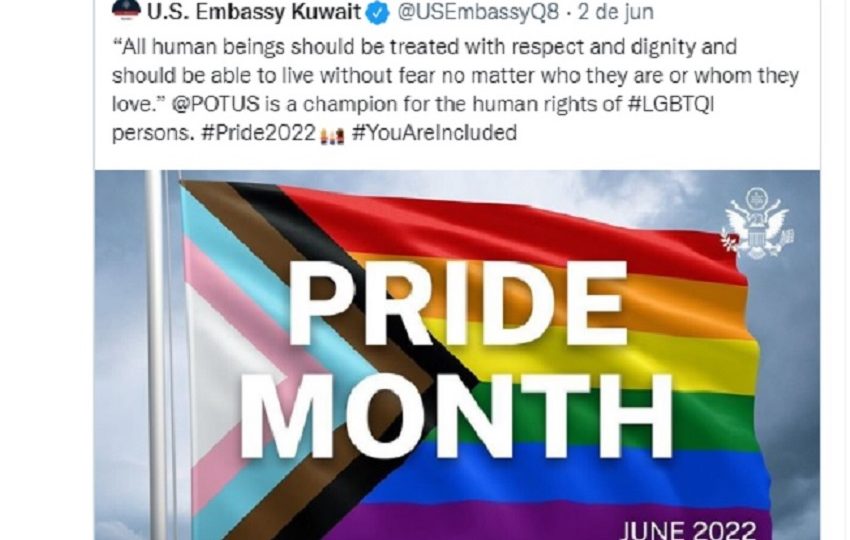
The Arab Parliament demanded that the United States respect the culture and religious values of Arab societies after the American embassies of several countries in the Persian Gulf publish messages in support of the LGBT community on social media, in allusion to the movement’s pride month. “The Arab Parliament called on US embassies in Arab countries to respect the culture of Arab societies and not undermine their religious and social values,” reads a statement by the legislature of the Arab League, a forum that brings together 22 countries in the region. The Cairo-based body classified as “unacceptable behavior” acts by some embassies in the region that “raised the flags of the so-called ‘gay’ category and issued statements of support for them”. This “contradicts the rules and norms in force in diplomatic policies, which are based on respect for the religious and social values of the countries and not offend or infringe on them”, added the forum.
The Parliament demonstration comes after some countries in the Persian Gulf reacted to the publication of tweets from their respective US embassies, which, like those of the embassies of other in the world, reflected the beginning of the month of LGBT Pride on June 1. In the posts, the American representations of countries such as Saudi Arabia, the United Arab Emirates, Kuwait and Bahrain showed their support for the LGBT community, asked for respect for their rights and reproduced the rainbow flag that represents the community.
Kuwait and Bahrain had already expressed indignation against these gestures, although the strongest reaction came from the former, whose Ministry of Foreign Affairs convened the American charge d’affaires to deliver a protest note. Following this move, US State Department spokesman Ned Price retweeted the message from the embassy in Kuwait on his official account on Friday (3) and wrote that his country “supports the LGBTQI+ community worldwide. “. Bahrain’s response was a note on its official news agency, “BNA”, in which it emphasized the rejection expressed by “various political, social and religious actors” who criticized the embassy’s message on the social network.


